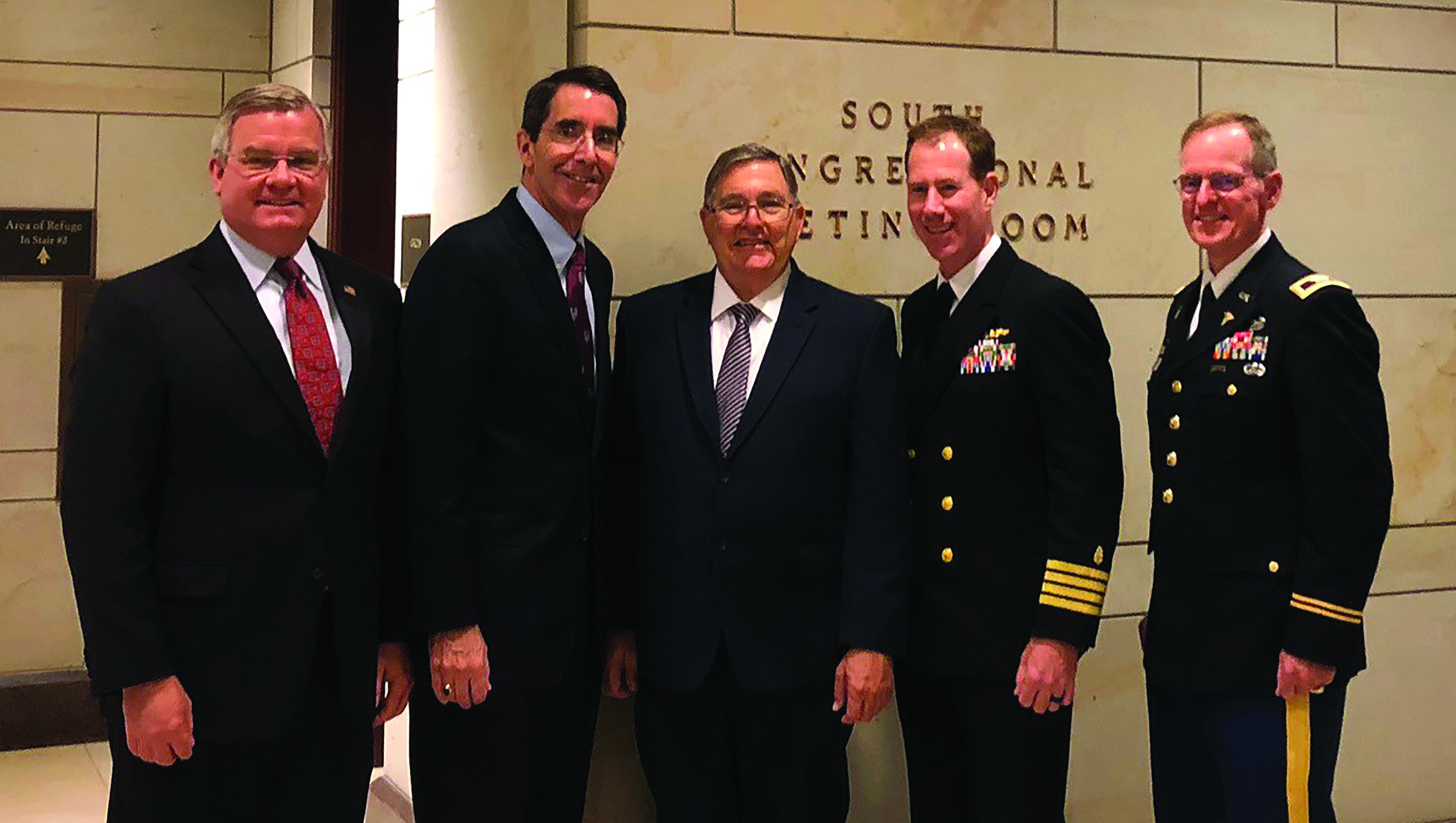User login
The American College of Surgeons (ACS) hosted a Capitol Hill briefing July 23 featuring a panel of experts on military surgical care—John H. Armstrong, MD, FACS; Arthur Kellerman, MD, MPH; CAPT Eric Elster, MD, FACS, USN; and COL Frederick Lough, MD, FACS, USA. The panelists focused on themes from the recent publication, Out of the Crucible: How the U.S. Military Transformed Combat Casualty Care in Iraq and Afghanistan, and the role military-civilian trauma partnerships play in maintaining trauma care readiness.
Attendees learned that the prolonged conflicts in Operation Iraqi Freedom and Operation Enduring Freedom saw an unprecedented improvement in military combat casualty care and the creation of the Joint Trauma System (JTS), allowing for the development and dissemination of best trauma practices across the Department of Defense. Preserving the JTS and establishing a fully integrated military-civilian trauma system are among the primary efforts of the Military Health System Strategic Partnership American College of Surgeons.
For more information about this briefing, contact Carrie Zlatos, ACS Senior Congressional Lobbyist, at czlatos@facs.org or 202-672-1508.
The American College of Surgeons (ACS) hosted a Capitol Hill briefing July 23 featuring a panel of experts on military surgical care—John H. Armstrong, MD, FACS; Arthur Kellerman, MD, MPH; CAPT Eric Elster, MD, FACS, USN; and COL Frederick Lough, MD, FACS, USA. The panelists focused on themes from the recent publication, Out of the Crucible: How the U.S. Military Transformed Combat Casualty Care in Iraq and Afghanistan, and the role military-civilian trauma partnerships play in maintaining trauma care readiness.
Attendees learned that the prolonged conflicts in Operation Iraqi Freedom and Operation Enduring Freedom saw an unprecedented improvement in military combat casualty care and the creation of the Joint Trauma System (JTS), allowing for the development and dissemination of best trauma practices across the Department of Defense. Preserving the JTS and establishing a fully integrated military-civilian trauma system are among the primary efforts of the Military Health System Strategic Partnership American College of Surgeons.
For more information about this briefing, contact Carrie Zlatos, ACS Senior Congressional Lobbyist, at czlatos@facs.org or 202-672-1508.
The American College of Surgeons (ACS) hosted a Capitol Hill briefing July 23 featuring a panel of experts on military surgical care—John H. Armstrong, MD, FACS; Arthur Kellerman, MD, MPH; CAPT Eric Elster, MD, FACS, USN; and COL Frederick Lough, MD, FACS, USA. The panelists focused on themes from the recent publication, Out of the Crucible: How the U.S. Military Transformed Combat Casualty Care in Iraq and Afghanistan, and the role military-civilian trauma partnerships play in maintaining trauma care readiness.
Attendees learned that the prolonged conflicts in Operation Iraqi Freedom and Operation Enduring Freedom saw an unprecedented improvement in military combat casualty care and the creation of the Joint Trauma System (JTS), allowing for the development and dissemination of best trauma practices across the Department of Defense. Preserving the JTS and establishing a fully integrated military-civilian trauma system are among the primary efforts of the Military Health System Strategic Partnership American College of Surgeons.
For more information about this briefing, contact Carrie Zlatos, ACS Senior Congressional Lobbyist, at czlatos@facs.org or 202-672-1508.

